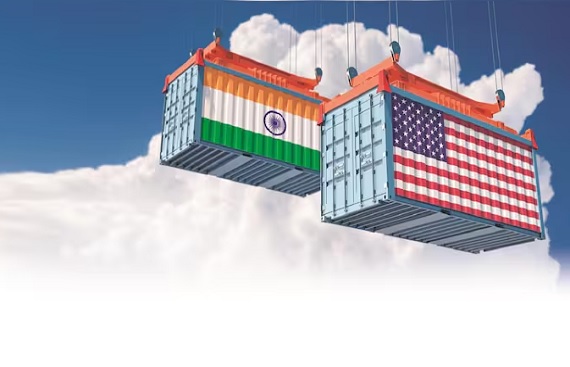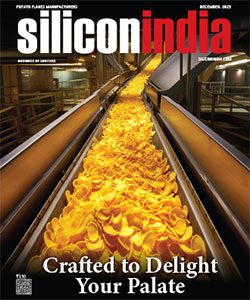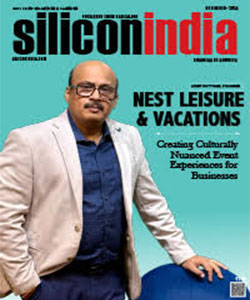US Tariffs Won't Hurt Indian Pharma and Steel Exports: Tycoons
By
siliconindia | Monday, 17 February 2025, 11:47:25 AM IST

Indian firms in the steel and pharmaceutical industries are quite indifferent to the looming trade tariffs by the Trump government, with two leading manufacturers of these critical products dismissing concerns regarding the possible adverse effect on Indian exports to the US.
Addressing the summit on 'Global Winds and India's Destiny: Is India Truly Resilient?' Dilip Shanghvi, Managing Director of Sun Pharma, was optimistic that Indian pharma exports to the US would not be impacted by tariff policies. He stressed the pivotal role played by Indian pharma firms in assisting the US in keeping healthcare costs under control. "The products we sell to the US are a very critical necessity for the US government, and that is to manage healthcare expenditures. If you can see some of the statements, they are considering various carve-outs, so some of the products will be excluded from the ambit of tariffs", Shanghvi said.
While the US government has not yet made particular tariffs on imported drugs official, the Trump administration has said that it will impose a 25% tariff on steel imports from other nations. Still, Shanghvi is hopeful that India's drug industry will remain stable in the long term, as even if tariffs are enacted, they may not immediately take effect. "In pharma, you take 5-7 years before you can begin manufacturing, so I do not see any short-term effect", he added, noting that tariff-related price adjustments would probably be fed through to consumers.
Naveen Jindal, Chairman of Jindal Steel and Power, expressed the same sentiment on the steel industry, noting that Indian steel exports to the US would not be seriously threatened by the new tariffs. "You would be amazed to know that it's just not now that these 25% tariffs are being imposed. Most products (steel) have tariffs where it's over 200%", Jindal indicated. He said India's steel production is mainly focused on domestic consumption, and although the US tariffs would affect export volumes, it could ultimately prove beneficial for India by eliminating the extra 200% tariffs such as anti-dumping and countervailing duties. "India is the world's second-largest steel-producing country. We make steel in India to be consumed locally. So, if you subtract the 25% tariff, and take out all the other tariffs, then actually it might work in our favor", Jindal said.
Both Shanghvi and Jindal pointed to the competitive edge of Indian industries in their respective sectors. Shanghvi observed that the Indian generic pharma industry has experienced considerable price adjustments over the years, and as such, is well-placed to ride out any short-term effect of tariffs. "The competitive edge we have in the country is long term, it won't evaporate even if some manufacturing were to begin in the US", he said.
But Jindal recognized possible indirect impacts on the domestic steel sector. "We are the largest steel producer in the world, after China. We are highly competitive. We have new plants and we can compete with everyone. There's little protection that Indian steel industry has. But with this (tariffs), all the nations which were exporting to the US, they may begin dumping in India because we have a large demand", he warned.
Shanghvi also noted that the demand for affordable healthcare in the US should make Indian pharma companies confident. With US policymakers increasingly questioning the exorbitant price of pharma drugs, the Indian industry's contribution to providing affordable generics could become even more pivotal. "The threat for big pharma that all players in the US discuss is high drug prices in their nation. And the US is over 50% of the pharma products. What will happen to pricing tomorrow will affect them much more than anything else we are debating", Shanghvi said.
The two leaders also concurred that their companies are at present at a stage of substantial growth. "Definitely both steel and power generation are in a high-growth phase because per capita consumption of steel is amongst the lowest in the world in India. The world average is 200 kg and ours is only 100 kg. Power consumption is less than 1,100-1,200 kw hours per person in India. In the US, it is 15,000 kw hours per person. So, to give people a better quality of life, both power and steel consumption will increase to support infrastructure and housing etc", Jindal explained.
Shanghvi further explained that Sun Pharma strives to develop long-term and short-term growth, with an emphasis on replenishing their regulatory pipeline to maintain a compounded annual growth rate of 25%. "Our philosophy is to make investments short term, medium term and long term. We will continue to replenish our regulatory pipeline to grow consistently", he explained.
To summarize, both steel and pharma majors were bullish about the viability of Indian steel and pharma industry, come what may regarding the uncertainties about the US trade policy. While the trade tariffs can create hassles in the immediate term, Shanghvi and Jindal believe India's comparative advantage and the international demand for value-priced healthcare and steel will take the nation out of any hump.
Read More News :
OneWeb Seeks Fast-Track Approval for Satellite Broadband in South Asia
India's 10-Tonne Vertical Mixer Boosts Space Tech Innovation: ISRO



